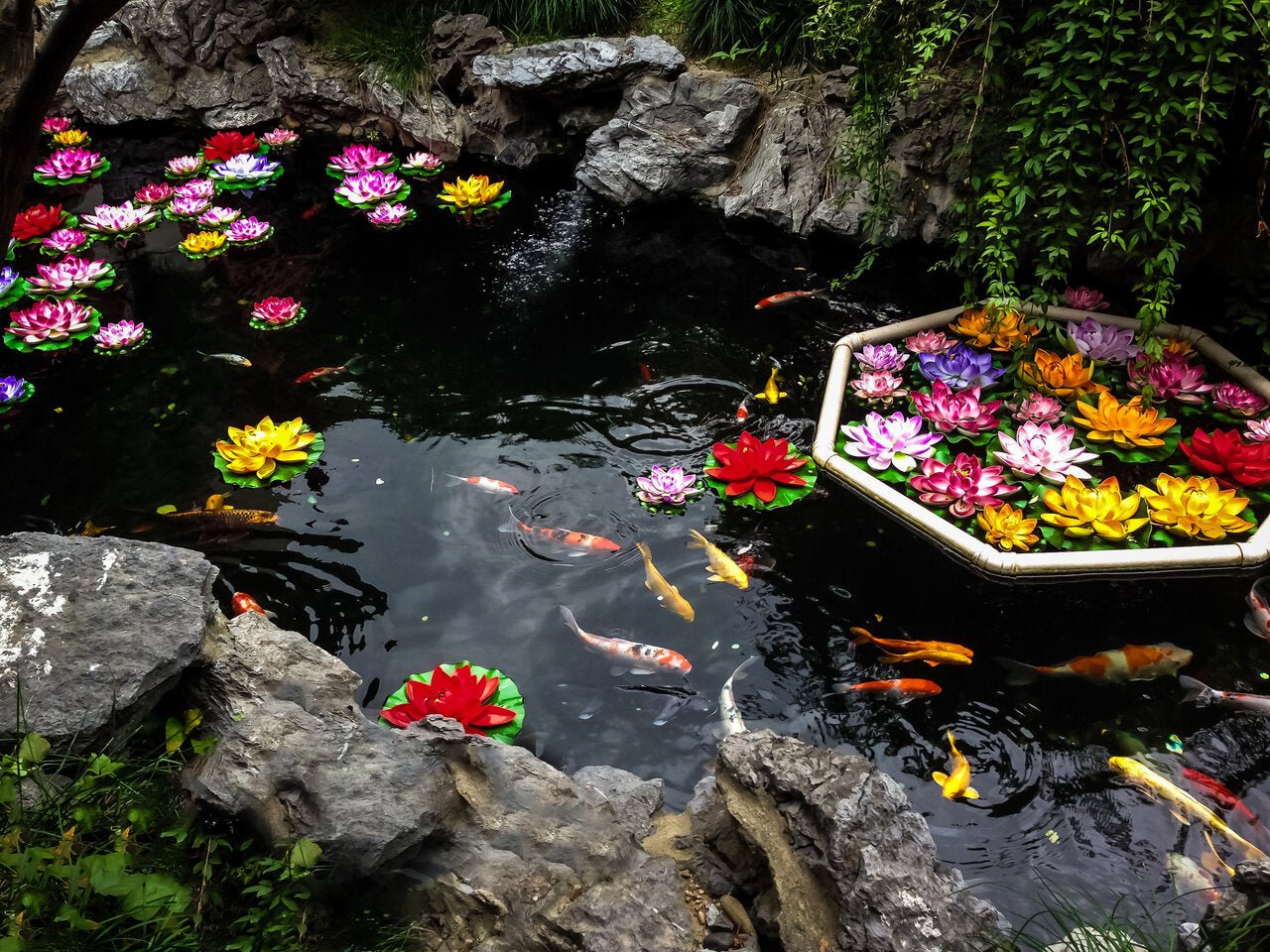A garden pond can transform your outdoor space, creating a haven for fascinating wildlife, boosting the aesthetic appeal of your property, and providing you with a tranquil place to relax and unwind. With the UK's largest range of aquatic solutions, PerfectAquatics is here to help you ensure your garden pond maintains excellent water quality so that your fish, plants, and other aquatic inhabitants can thrive.
Garden pond water quality is essential to keeping your pond's ecosystem healthy and balanced. Poor water quality can stress fish and limit the growth of aquatic plants, leading to an unhealthy and unsightly pond. Often, the key to maintaining water quality in a pond comes down to regular care and knowing what to look for when issues arise. In this ultimate guide, we'll discuss the essential facets of proper garden pond water quality management, as well as expert tips for preventing common problems.
We'll delve into the importance of monitoring and maintaining specific water parameters, such as pH levels, temperature, and dissolved oxygen. You'll learn how essential equipment like filters, pumps, and aeration systems can greatly impact the overall water quality of your pond. Moreover, we'll explore the benefits of regularly cleaning your pond and removing debris, such as leaves, twigs, and dead plants, which may cause water quality issues if left unchecked.
Discover our range of pond water quality products and create the healthy aquatic ecosystem of your dreams.
Understanding Key Water Parameters for Garden Pond Health
In order to maintain a healthy garden pond, you must keep an eye on specific water parameters and ensure they stay within acceptable ranges. These parameters play a crucial role in keeping your aquatic ecosystem balanced and are critical to the well-being of your pond's inhabitants. Some essential indicators to monitor include:
- pH levels – The pH level of your pond water measures its acidity or alkalinity. A neutral pH of around 7 is ideal for most garden ponds, but a slightly higher level (7.2-8.5) can be tolerated by fish and plants. Regularly testing and adjusting your pond's pH is vital to maintaining good water quality and preventing stress on aquatic life.
- Ammonia, Nitrite, and Nitrate levels – These three compounds can have a significant impact on your pond's ecosystem. Fish excrete ammonia, which is then converted to nitrite by helpful bacteria. Nitrite is subsequently converted to nitrate, which is less harmful to your pond's inhabitants, though still undesirable in large quantities. Keep these three parameters in check by using simple water testing kits and making necessary adjustments to your pond care routine.
- Dissolved oxygen levels – Oxygen is crucial to the health of your fish and other pond-dwelling creatures. Low oxygen levels can lead to stress and even death, especially during warm summer months when the water's capacity to hold oxygen decreases. Proper water circulation and aeration can ensure adequate oxygen levels throughout the pond. A dissolved oxygen test kit can help you monitor your pond's oxygen levels and make required adjustments.
- Water temperature – Fluctuating water temperatures can also impact the well-being of your pond's inhabitants. Fish, in particular, are sensitive to temperature changes, and it can affect their feeding and metabolism. Keep an eye on the water temperature using a pond thermometer and be prepared to take steps if large fluctuations occur.
Equip Your Pond for Optimal Water Quality Management
Properly functioning equipment can significantly improve your garden pond's water quality. Here are some essential devices that can help maintain a healthy ecosystem:
- Pond Filters – A pond filter is a must-have for keeping your water clean and clear. There are several types of filters, including mechanical, biological, and chemical filters that work together to remove debris, excess nutrients, and harmful substances. Choose a filter designed for your pond's size and stock level to achieve the best results.
- Water Pumps – Water circulation is vital for oxygenating your pond and keeping the water fresh. A pond pump can assist in the circulation of water through your filter system to prevent stagnation, which can lead to poor water quality and present various health risks for your aquatic life. Ensure that the pump you select is capable of handling your pond's volume and has sufficient pressure for your filtration system.
- Aeration Systems – In addition to assisting with water circulation, installing an aeration system in your pond can help increase oxygen levels and maintain water temperature uniformity. A variety of aeration solutions are available, including air stones, diffusers, and surface aerators, which can be tailored to suit the size and depth of your pond.
- UV Clarifiers – Algae can be a significant problem in garden ponds, causing water to become cloudy or tinted green. Ultraviolet (UV) clarifiers are a popular solution for combatting algae growth, as they use UV light to disrupt the algae cells' ability to reproduce. Installing a UV clarifier can keep your pond water looking clear and healthy.
Regular Pond Maintenance for High-Quality Water
Keeping your garden pond clean and free of excess debris is essential to maintaining good water quality. Incorporating the following practices into your pond care routine will help to ensure your pond stays in top condition:
- Remove Debris – Periodically remove debris, such as fallen leaves, twigs, and dead plants, from your pond, as it can decay and release harmful nutrients into the water. Consider installing pond netting during autumn to catch falling leaves.
- Clean Filters – Regularly clean your pond filters to ensure they are working efficiently. A clogged filter can compromise water quality and lead to an unhealthy pond.
- Trim Pond Plants and Control Algae – Keep aquatic plants well-trimmed and remove any excess algae. Overgrown plants can obstruct light, inhibit aeration, and reduce overall water quality.
Conclusion: A Proactive Approach to Garden Pond Water Quality
By understanding essential water parameters, investing in reliable pond equipment, and regularly maintaining your garden pond, you can create a thriving aquatic ecosystem with pristine water quality. A proactive approach to garden pond care will keep your pond's inhabitants healthy and ensure you enjoy a beautiful outdoor space for years to come.
Trust PerfectAquatics as your one-stop shop for all your garden pond needs, from pond equipment to expert advice. We're here to help you achieve a flourishing aquatic paradise in your own backyard. Choose PerfectAquatics for all your garden pond accessories and essentials and build the outdoor oasis you've always wanted!

